
 Flash News
Flash News
From the ground to paper, Rama announces new reform for "untouched lands"
Suspected of being murdered, photo emerges of 23-year-old found dead in Shkopet lake
Theth action, resident in tears: I built on my land with my life's expenses, the state should not destroy it
Directors targeted! After Fier and Durrës, Rama arrives in Elbasan
Name/Identification of the 23-year-old found dead near Shkopet Lake
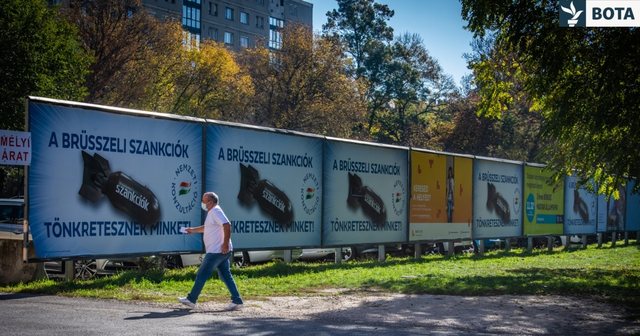
The European Union is one step away from approving the latest package of sanctions against Moscow, the 18th in a row since the start of Russia's war in Ukraine three years ago.
However, two points remain to be negotiated. The first is the setting of a price ceiling on Russian oil. It is still included in the draft proposals seen by Radio Free Europe, but it remains to be seen whether it will be included in the final draft.
And second, the Slovak veto on a sanctions-related issue, although it is not directly part of the package.
When the European Commission presented the package to EU member states in early June, the main point was the reduction of the ceiling price, from the current figure of 60 US dollars per barrel, to 45 dollars.
Since this policy belongs to the group of seven most industrialized countries (G7), the EU has attempted to secure support from the G7 countries, especially the United States, at a summit held last month in Canada, but has failed to get the American vote, especially after the increase in oil prices, as a result of Israeli and American attacks against Iran.
However, Brussels decided to move forward with the initiative, especially given the fact that the price ceiling on Russian oil was initially an opportunity for the EU to impose a ban on Russian oil transportation services.
In recent discussions in Brussels, several European officials said on condition of anonymity that Cyprus, Greece and Malta – all countries with significant maritime services – are against lowering the ceiling price.
However, there are some voices saying that these countries may soften their stances, especially since the United Kingdom, another country with numerous maritime services, is in line with Brussels for price reductions.
Diplomats believe the United States will join Brussels and London if they both fully agree on the points of the deal. The biggest challenge is Malta, although some hope Valletta can even agree if the ceiling price does not fall below $45 per barrel.
Then comes the Slovak veto. Bratislava has set conditions for the vote on more sanctions, demanding that a European Commission proposal to end Russian energy imports into the European bloc by the end of 2027 be reconsidered.
The proposal, made public in May, is called “Reinforce the EU” and has sparked concern in Slovakia and Hungary, with the latter seemingly tacitly supporting its northern neighbor.
And it's easy to see why. Since 2022, the European Union has restricted the purchase of Russian energy through sanctions, such as banning most oil and coal imports.
Mirëpo, sanksionet kërkojnë unanimitet të 27 vendeve anëtare. Hungaria dhe Sllovakia e kanë përdorur disa herë veton në vitet e fundit, kur Brukseli ka prezantuar propozime më të ashpra që do ta shënjestronin sektorin rus të energjisë.
Prandaj Komisioni Evropian është duke tentuar që përmes nismës “Rifuqizojeni BE-në” të rregullojë tregun e brendshëm të BE-së me një mori masash, shumica e të cilave mund të miratohen me shumicë të kualifikuar prej 55 për qind të vendeve anëtare që përfaqësojnë 65 për qind të popullsisë së gjithë BE-së.
Me fjalë tjera, kështu i shmangen edhe Bratisllavës, edhe Budapestit.
Propozimi kryesor do të jetë një kërkesë ligjore për të vendosur ndalesë në të gjitha kontrata e reja për gazin rus si dhe në kontratat afatshkurtra për gazin e lëngshëm natyror për të paktën deri në fund të vitit.
Për kontratat afatgjata, rregulloret do të sugjerojnë periudhë të shkëputjes graduale deri në fund të vitit 2027.
Importet e gazit rus në BE kanë rënë nga 45 për qind më 2021 në 19 për qind më 2024 dhe pritet të ulen në 13 për qind më 2025, me bllokimin e transitit ukrainas në fillim të këtij viti.
Megjithatë, BE-ja është turpëruar që importet e gazit të lëngshëm natyror janë rritur për 12 për qind vitin e kaluar, në krahasim me vitin 2023.
Në importet e naftës, situata është më pak dramatike, mirëpo shumë specifike në aspektin gjeografik dhe e ndjeshme në atë politik.
Importet e naftës ruse përbëjnë vetëm 3 për qind të të gjithë naftës së importuar në BE, në krahasim me 27 për qind më 2022, kryesisht për shkak të sanksioneve.
Megjithatë, duhet përmendur se disa vende të Evropës Qendrore kanë pasur përjashtim nga një pjesë e sanksioneve. Ndonëse Çekia e ka ndalur importin prej këtij burimi, Hungaria dhe Sllovakia ende e importojnë 80 për qind të naftës së tyre totale prej Rusisë.
Komisioni Evropian do të kërkojë dhënien fund të importeve të naftës ruse deri në fund të 2027 dhe palët duhet të ofrojnë një strategji se si planifikojnë ta arrijnë këtë synim.
Kryeministri sllovak, Robert Fico ka sinjalizuar në samitin e BE-së, të mbajtur në Bruksel më 26 qershor, se ai nuk do të japë dritën e gjelbër për paketën e sanksioneve, dhe që i duhen më shumë sqarime për nismën “Rifuqizojeni BE-në”.
Sipas diplomatëve të afërt me këto zhvillime, Bratisllava nuk është duke kërkuar shumë përjashtime, por më tepër siguri ligjore lidhur me kontratat e ardhshme me Gazpromin.
Javën e kaluar, zyrtarë të Komisionit Evropian e kanë vizituar Bratislavën për t’u takuar me zyrtarë sllovakë dhe përfaqësues të kompanive të energjisë.
Ndonëse sipas diplomatëve të BE-së, takimet kanë shkuar “mirë”, duket se Ficoja nuk është krejtësisht i bindur.
Ambasadorët e BE-së, të takuar në Bruksel më 4 korrik, për t’i diskutuar sanksionet kanë mësuar se dokumenti nuk është komplet gati për miratim.
Në komunikatën për shtyp të lëshuar nga Ministria sllovake e Ekonomisë, pas vizitës së zyrtarëve të Komisionit Evropian, është sinjalizuar nevoja për më shumë diskutime në ditët në vijim.
Minister Denisa Sakova said that "the meeting in Bratislava is an important step towards finding a solution, taking into account the specific factors of each member state when it comes to diversifying sources and guaranteeing affordable energy prices for Slovak industry, which is facing increasing costs."
In the end, it was said that Slovakia is ready to continue "the constructive approach to the proposed measures and will continue discussions with experts, with the involvement of all interested parties."/ REL
Latest news

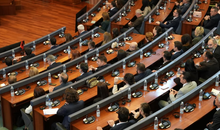
The 44th attempt to create a new Assembly for Kosovo also fails
2025-07-09 11:45:22
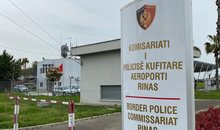
The head of the Rinas police station is reconfirmed in office
2025-07-09 11:25:03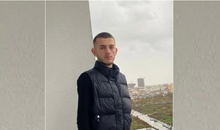


Found dead in Shkopet Lake, 23-year-old has injuries to his throat
2025-07-09 10:41:39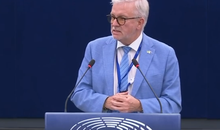


Hoxha: We will have a parliament that will surpass any comedy program!
2025-07-09 10:10:32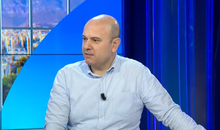

Directors targeted! After Fier and Durrës, Rama arrives in Elbasan
2025-07-09 09:53:57
Name/Identification of the 23-year-old found dead near Shkopet Lake
2025-07-09 09:42:34
IKM action in Theth, residents come out in protest
2025-07-09 09:34:54
Reasons why the EU has not imposed new sanctions against Russia
2025-07-09 09:18:35
DW: Online scams increase human trafficking
2025-07-09 09:01:29

Reported missing by his father, 23-year-old found dead near Shkopet lake
2025-07-09 08:42:13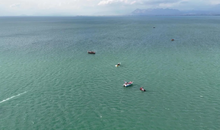

Horoscope, what do the stars have in store for you today?
2025-07-09 08:25:44
Sun and rain, Wednesday with unstable weather
2025-07-09 08:06:58
Posta e mëngjesit/ Me 2 rreshta: Çfarë pati rëndësi dje në Shqipëri
2025-07-09 07:52:02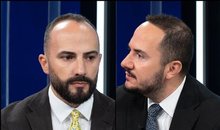

Tabaku: Salianji bore a political cost that no one in Albania has borne
2025-07-08 22:36:15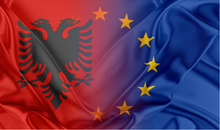


Sekretet për të shijuar verën si një ‘profesionist’
2025-07-08 21:45:06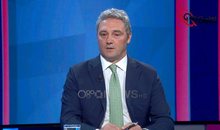

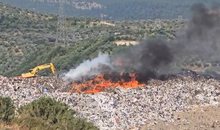
Albania's Waste Crisis: Toxic Smoke and Deep Governance Problems
2025-07-08 21:13:07
Alarming pollution in Fushë-Arrëz, copper factory waste turns the Fan River red
2025-07-08 21:07:14

Poll/ How do you assess the Prime Minister's intervention in local government?
2025-07-08 20:40:01
28 arrested in Italy and Spain for drug trafficking, including an Albanian
2025-07-08 20:24:14
Residents clash with police in Theth: We are on our land
2025-07-08 20:11:41
Death of 27-year-old in Lipjan, Osmani: To be investigated independently!
2025-07-08 20:06:52
Trump promises US will send more weapons to Ukraine
2025-07-08 19:54:25

EU targets health, education, police and cadastre as areas of corruption
2025-07-08 19:23:34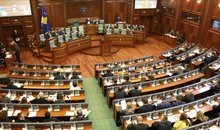


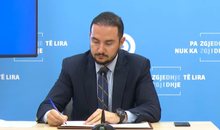

Salianji after his return: I did not oppose for functions, but for vocation
2025-07-08 18:23:15
Will he run in the 2029 elections? Here's how Salianji answers
2025-07-08 18:16:09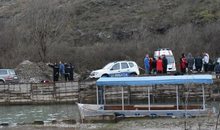
Boat captain drowns after diving into water to save two tourists in Shkodra
2025-07-08 18:05:12
Salianji from the DP headquarters: I brought a drug trafficker to justice
2025-07-08 18:03:26
After Fier, Rama "landes" in Durrës, dismissals expected
2025-07-08 17:53:32
Ervin Salianji arrives at the blue headquarters, welcomed by supporters
2025-07-08 17:45:12
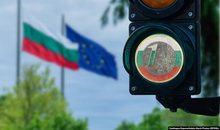
EU approves final steps for Bulgaria's Eurozone membership
2025-07-08 17:43:06
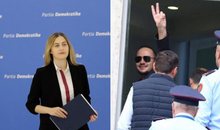
Zhupa after Salianj's release: Inspiration for every opposition member
2025-07-08 17:19:39
Actor David Killick passes away
2025-07-08 17:09:23



Threatened with dismissals, Rama arrives at the Fier municipality
2025-07-08 16:39:19
Extreme temperatures temporarily close Acropolis in Greece
2025-07-08 16:30:34

A plot of cannabis is discovered in Mazha, Kruja
2025-07-08 16:13:48
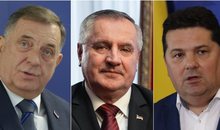
Republika Srpska allocates additional 22 million euros for lobbying in the US
2025-07-08 15:52:04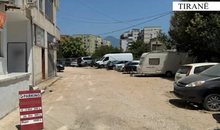

Spices that protect you from mosquitoes!
2025-07-08 15:30:03

Accident on the Vlora-Qeparo axis, one injured
2025-07-08 15:11:52
Berat, 17 years part of UNESCO's world heritage
2025-07-08 15:03:30
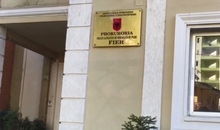

Cost of living increases, inflation rises to 2.4% in June, driven by food
2025-07-08 14:29:54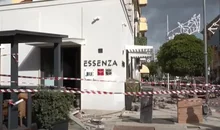
VIDEO/ Restaurant roof collapses in Italy, one victim and ten injured
2025-07-08 14:18:44
Requested release from cell, Supreme Court leaves Veliaj in prison
2025-07-08 14:07:41
TikTok shutdown/ Austrian media: Rama benefited politically from the app ban
2025-07-08 13:48:25
Acropolis temporarily closed due to heat
2025-07-08 13:31:09

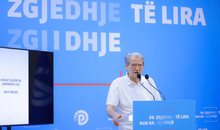
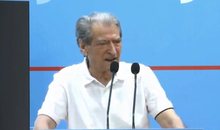
Salianj's release/Berisha: He was politically condemned by Rama and Xhafa!
2025-07-08 13:00:13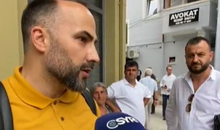

Knife attack on Peshkopia Boulevard
2025-07-08 12:44:10


Fier Court decides on the conditional release of Ervin Salianj
2025-07-08 12:15:23
Cost of living increases, inflation rises to 2.4% in June due to food
2025-07-08 12:00:16
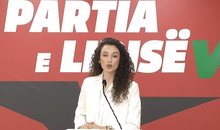
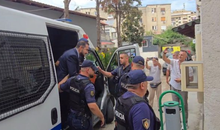
Requesting conditional release, Ervin Salianji arrives at the Fier Court
2025-07-08 11:16:36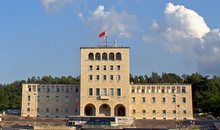
The first phase of university applications begins today
2025-07-08 11:10:52
Fire in Lura, flames endanger the National Park
2025-07-08 10:53:43
Trump warns of 35% tariffs on Serbia and 30% on Bosnia and Herzegovina
2025-07-08 10:37:32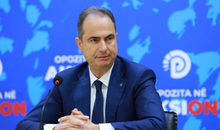
Thethi rooster and the dung cock
2025-07-08 10:24:01

Fire in Dukat endangers Llogara National Park
2025-07-08 10:01:39
International drug search: 36-year-old arrested in Durrës (NAME)
2025-07-08 09:50:48
Thethi, tourists "criticize" modern trend
2025-07-08 09:39:54
Fire on Mount Dukat still active, Llogara National Park at risk
2025-07-08 09:28:12
Veliaj's appeal to be heard today in the High Court
2025-07-08 09:16:02
"Bad sign for democracy"/ Parliament neglects reporting by institutions
2025-07-08 09:04:56
